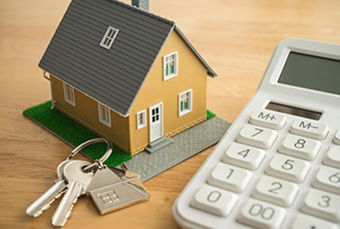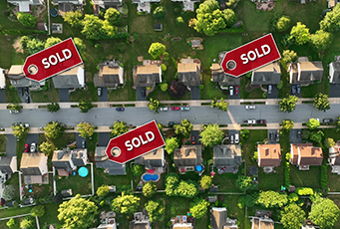Becoming a new homeowner is now more costly than we've seen in recent memory. Does that mean you shouldn't buy? Should you rent instead? It depends.
Statistics
Home prices have increased almost 30% since the start of the Coronavirus pandemic in early 2020, and prices continue to rise due to a shortage of availability and increased demand.
Due to the bidding wars in home buying and rising mortgage rates, there is also high demand for properties to rent. According to Zillow, rent has increased almost 15% over the past 12 months, and rental properties' availability is at an all-time low.
And, mortgage rates? According to Freddie Mac, a 30-year mortgage is in the 5.0%-range today versus 2.75% in January 2021.
What You Should Do?
First, run some numbers to determine your financial situation.
- Calculate a monthly budget for a mortgage and a rent payment.
- Consider an additional allotment for repairs, maintenance, property taxes, and insurance if you're buying a home. Be sure to add the cost of renters insurance if renting.
- Compare the total monthly expense of buying versus renting for the homes you are considering.
- Determine your cash available for the down payment on a home (10% to 20% of the purchase price is typical).
- Make sure you have additional cash for furnishings whether you rent or buy, plus the cost of any repairs and potential renovations if you buy.
- Calculate your current debt to income ratio (how much of your gross monthly income goes toward debt obligations, such as an auto loan, credit cards, etc.).
- Check your credit score – the higher, the better when obtaining a mortgage and renting a home or apartment.
Next, consider your employment and family situation. This could impact the length of your stay in a home or rental property. If you think you could be moving in a few years, you'll need to consider the cost of selling a home or breaking a rental lease.
Research the market growth of the area in which you intend to move: a growing community would suggest that a home would appreciate or, at a minimum, maintain its value, which is ideal for a buyer. If renting, this may cause your rent to increase at a higher pace than in other communities.
Challenge your "wants" for raising your family in the community or neighborhood and your desire to be a part of it.
Given the above factors, talk with a realtor and mortgage lender to determine your options for a new home.
Pros & Cons for Renting versus Buying
Buying: Your home is an asset, and even if you have a mortgage, you will gain valuable equity as the loan is paid down and the home's value increases.
Renting: Your rent payments are an expense, not an investment. The rent is helping the rental property owner pay down their mortgage or management expenses.
Buying: If you have a fixed rate mortgage, your mortgage payment will be consistent over the loan term.
Renting: The cost of rent is subject to increases at the end of each lease term.
Buying: Mortgage interest and property taxes are deductible expenses on your tax return.
Renting: Rent payments are not tax deductible at the federal level; however, some states allow for some deduction at the state level.
Buying: You can renovate and modify your home as you please.
Renting: This is not the case when renting.
Buying: Home ownership offers more stability over time.
Renting: Renters tend to move more often; your neighbors likely will even if you don't.
Buying: You'll need to fork out some cash for the down payment, even if you take out a mortgage for the purchase.
Renting: A security deposit equal to one month's rent or more is typically required when renting.
Buying: You're responsible for the cost of repairs and maintenance (new roof, windows, landscape, paint, etc.)
Renting: No responsibility for repairs and maintenance. However, the lessor has considered this expense when determining your rent payment.
Buying: If you decide to relocate, it can take time and money to prepare your home for the sale, and more time to sell it.
Renting: Whether you break your lease or move elsewhere when your lease is up, you can simply pack up and go.
Summary
When looking to "make a move," it's best to do your financial assessment, research your options, and consider the time you expect to live in the property. Generally, if planning to stay in the home long-term, buying makes better financial sense than renting under most circumstances. In the end, however, it may ultimately come down to your personal preference.
Schedule a Consultation
We have helped our clients answer these questions and more. If you want a clear understanding of your financial future, and need help making changes to reach your goals, schedule a consultation and we can get started.
Prior to implementing any investment strategy referenced in this article, either directly or indirectly, please discuss with your investment advisor to determine its applicability. Any corresponding discussion with a Bedel Financial Consulting, Inc. associate pertaining to this article does not serve as personalized investment advice and should not be considered as such.
Recommended Articles
Rent, Relax, and Write Off: Tax Tips for Renting Your Second Home
With additional income comes additional taxation. While...





